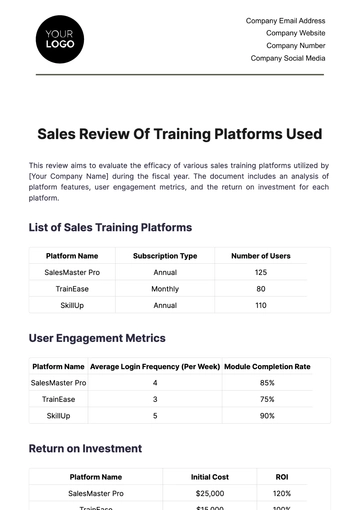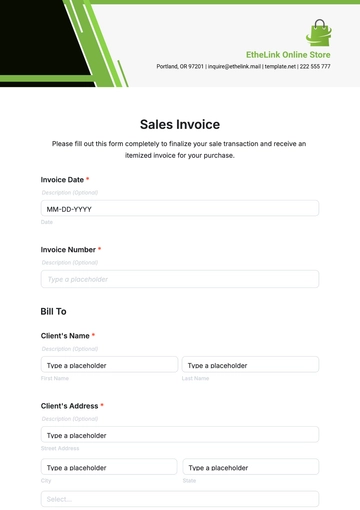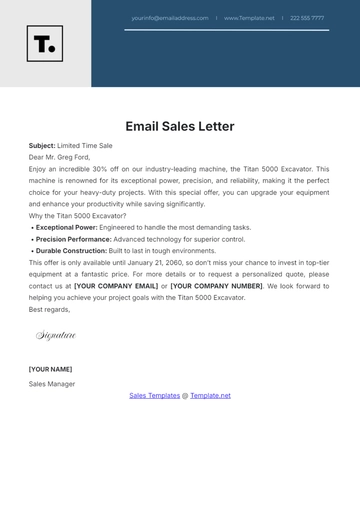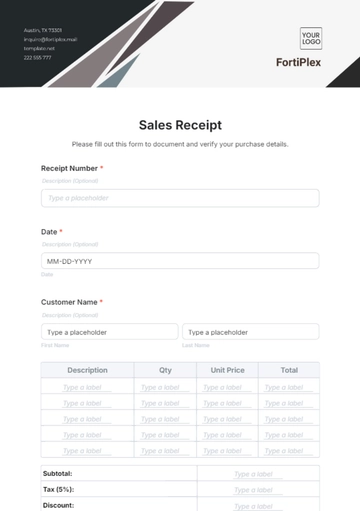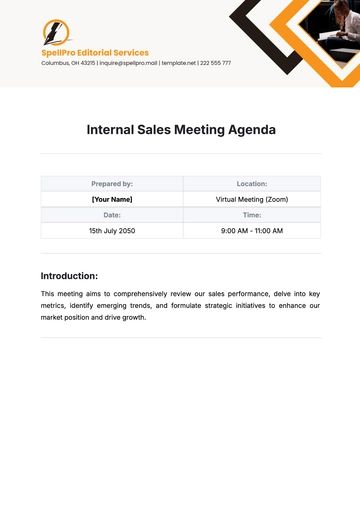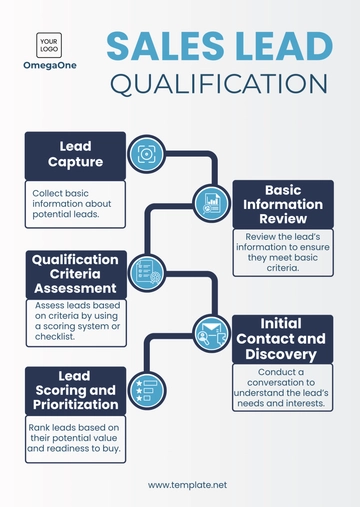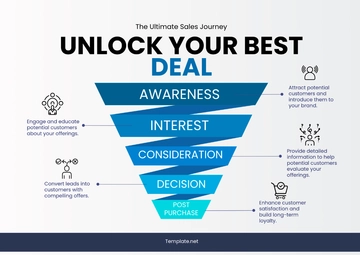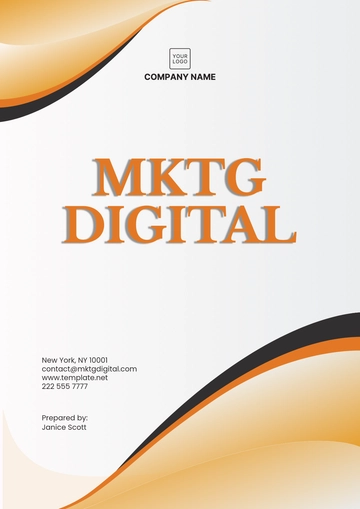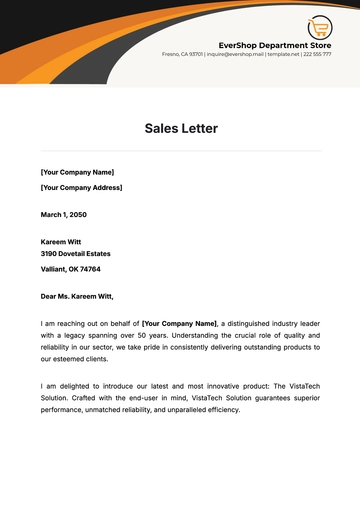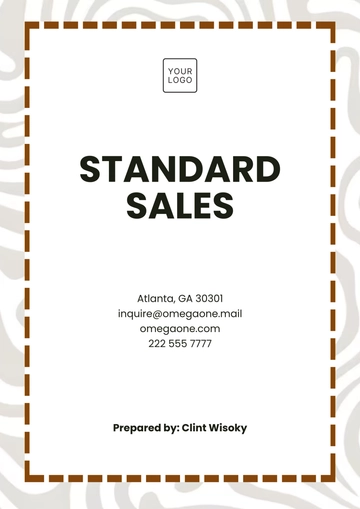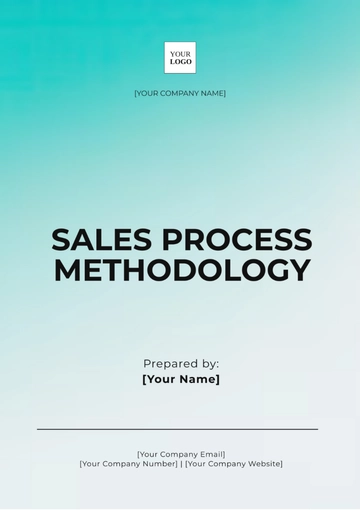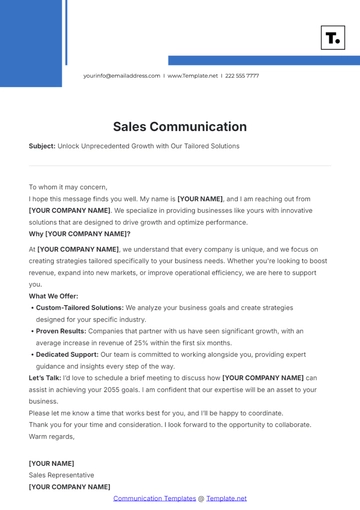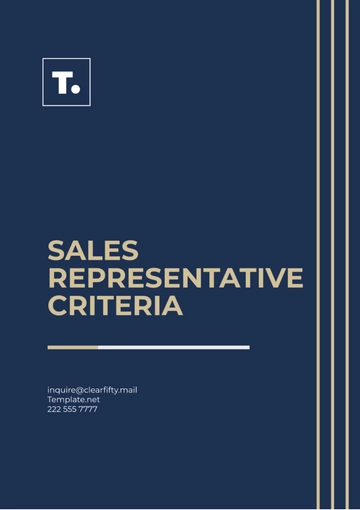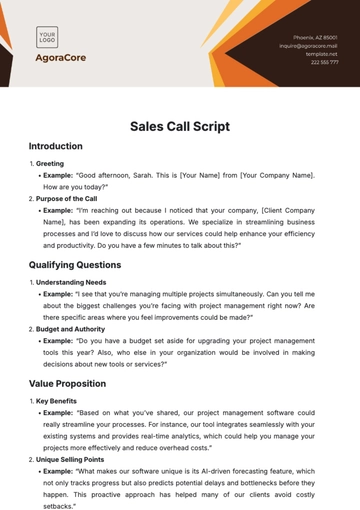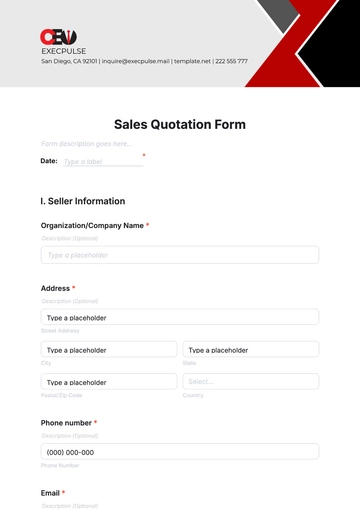Free Sales Protocol for Commission Audits and Compliance
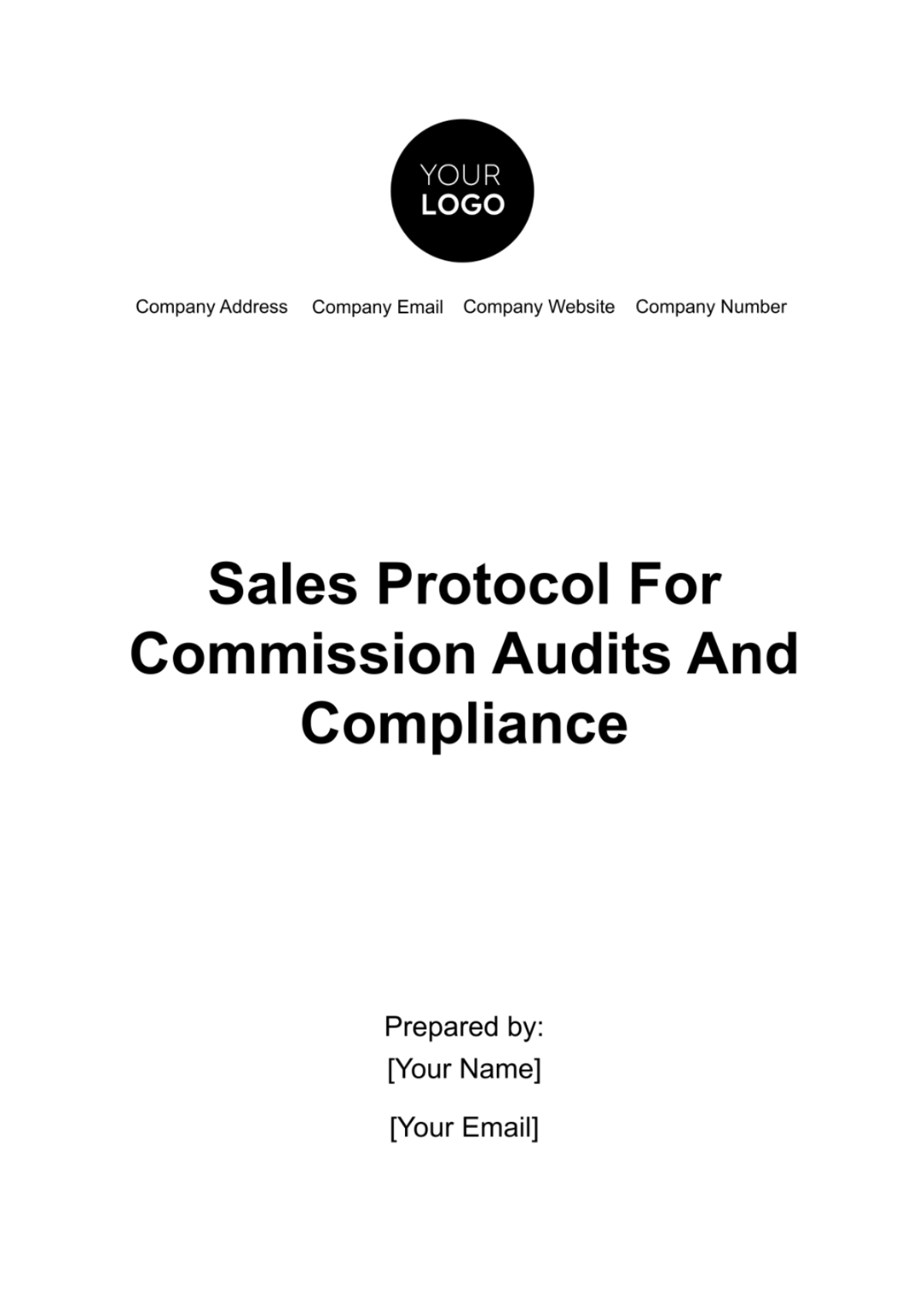
I. Introduction
A. Purpose
The purpose of this Sales Protocol for Commission Audits and Compliance is to establish clear guidelines and procedures for auditing sales commissions to ensure accuracy, transparency, and compliance with company policies and regulatory requirements. This protocol aims to maintain the integrity of commission calculations and payments while mitigating risks associated with errors, discrepancies, and non-compliance issues.
B. Scope
This protocol applies to all sales representatives, managers, and personnel involved in the sales commission process at [Your Company Name]. It encompasses the auditing process, compliance requirements, remediation measures, and performance evaluation related to sales commissions. By adhering to this protocol, [Your Company Name] seeks to uphold ethical standards, legal obligations, and industry best practices in managing sales commissions.
II. Definitions and Terminology
A. Commission
Commission refers to the monetary compensation paid to sales representatives based on their performance in generating sales revenue. Commissions are typically calculated as a percentage of the total sales value or a fixed amount per sale, depending on the commission structure and agreement.
B. Sales Audit
A sales audit is a systematic examination of sales transactions, records, and processes to verify the accuracy and integrity of commission payments. The audit evaluates the completeness, accuracy, and compliance of sales data, commission calculations, and payment disbursements.
C. Compliance
Compliance refers to adherence to company policies, industry regulations, and legal standards governing sales commission practices. It encompasses the fulfillment of contractual obligations, adherence to commission agreements, and compliance with applicable laws and regulations, such as the Fair Labor Standards Act (FLSA) and industry-specific regulations.
D. Audit Objectives
Audit objectives define the goals and purposes of the commission audit, guiding the audit process and determining the scope of examination. Common audit objectives include verifying the accuracy of commission calculations, detecting errors or irregularities, assessing compliance with commission policies and agreements, and identifying areas for process improvement.
E. Audit Criteria
Audit criteria are the standards, benchmarks, and guidelines used to evaluate sales transactions, commission calculations, and payment processes during the audit. These criteria may include commission agreements, company policies, regulatory requirements, and industry best practices.
F. Segregation of Duties
Segregation of duties refers to the division of responsibilities and tasks among different individuals or departments to prevent conflicts of interest, ensure checks and balances, and enhance internal controls in the commission process. Segregation of duties helps mitigate the risk of fraud, errors, and unauthorized activities by requiring multiple individuals to be involved in key commission-related tasks.
G. Record Retention
Record retention involves the systematic storage, maintenance, and preservation of records and documentation related to commission audits, sales transactions, commission agreements, and payment records. Record retention policies ensure compliance with legal and regulatory requirements, facilitate audit trails, and support transparency and accountability in commission management.
Table 1: Audit Objectives
Audit Objective | Description |
|---|---|
Verify Accuracy of Commission Payments | Ensure that commission calculations are accurate and consistent with commission agreements and sales transactions. |
Detect Errors and Irregularities | Identify discrepancies, errors, or irregularities in commission calculations, payment records, and sales data. |
Assess Compliance with Policies | Evaluate adherence to company policies, regulatory requirements, and industry standards governing sales commission practices. |
Identify Process Improvement Opportunities | Identify opportunities to enhance commission processes, controls, and efficiency based on audit findings and observations. |
III. Commission Audit Process
A. Pre-Audit Preparation
Identify Audit Objectives: Define the specific objectives and goals of the commission audit, considering factors such as accuracy, compliance, and process improvement.
Establish Audit Criteria: Determine the criteria and standards against which sales transactions, commission calculations, and payment processes will be evaluated during the audit.
Allocate Resources: Assign audit team members, including auditors and subject matter experts, and allocate necessary resources, such as time, tools, and technology, for conducting the audit effectively.
B. Audit Execution
Data Collection: Gather comprehensive sales data, including sales transactions, commission agreements, payment records, and supporting documentation, to facilitate the audit process.
Analysis and Testing: Analyze sales data and commission calculations to identify discrepancies, errors, or irregularities. Conduct sample testing of sales transactions to validate the accuracy of commission payments and compliance with company policies.
Documentation: Maintain detailed documentation of audit procedures, observations, analysis results, and supporting evidence to substantiate audit findings and conclusions.
C. Reporting and Communication
Audit Report: Prepare a comprehensive audit report documenting the audit findings, observations, and recommendations for corrective actions. The report should include a summary of key findings, analysis results, and proposed remediation measures.
Management Review: Present the audit report to management for review and approval, highlighting significant findings, areas of concern, and proposed corrective actions. Seek management's support and endorsement for implementing recommended measures.
Communication: Communicate audit findings, recommendations, and action plans to relevant stakeholders, including sales representatives, managers, HR personnel, and finance teams. Ensure clear and transparent communication to foster accountability and commitment to addressing audit findings.
IV. Compliance Requirements
A. Regulatory Compliance
Legal Requirements: Ensure compliance with relevant laws and regulations governing sales commission practices, such as the Fair Labor Standards Act (FLSA), state labor laws, and industry-specific regulations.
Industry Standards: Adhere to industry best practices and standards for sales commission management, including transparency, fairness, and accuracy in commission calculations and payments.
B. Company Policies and Procedures
Commission Policies: Maintain clear and comprehensive policies and procedures governing commission calculations, eligibility criteria, payment processes, and dispute resolution mechanisms. Ensure that commission policies are communicated effectively to all relevant stakeholders.
Code of Conduct: Reinforce adherence to ethical standards and conduct in sales activities, emphasizing integrity, honesty, and fairness in dealing with customers, colleagues, and commission-related matters.
V. Monitoring and Oversight
A. Internal Controls
Segregation of Duties: Implement and maintain a system of segregation of duties to ensure that responsibilities and tasks related to commission management are appropriately divided among different individuals or departments. This helps prevent conflicts of interest, unauthorized activities, and errors in the commission process.
Review Procedures: Establish regular review procedures to monitor and evaluate the effectiveness of internal controls and compliance with commission policies. Conduct periodic reviews of sales data, commission calculations, payment records, and documentation to detect and prevent errors, discrepancies, and fraudulent activities.
B. Audit Trail
Documentation Trail: Maintain a comprehensive audit trail of sales transactions, commission calculations, payment approvals, and other relevant activities related to commission management. Ensure that all transactions and decisions are adequately documented and recorded to support accountability, transparency, and auditability.
Record Retention: Establish and adhere to record retention policies to ensure the timely and secure storage of commission-related records and documentation. Retain records for the required period as per company policies, regulatory requirements, and industry standards to facilitate audits, investigations, and legal compliance.
VI. Training and Education
A. Employee Training
Commission Policies and Procedures: Provide comprehensive training to sales representatives, managers, and other relevant personnel on company policies and procedures governing commission management. Ensure that employees understand their roles, responsibilities, and obligations related to commission calculations, eligibility criteria, payment processes, and dispute resolution.
Compliance Awareness: Raise awareness among employees about the importance of compliance with commission policies, regulatory requirements, and ethical standards. Educate employees on the implications of non-compliance, including legal risks, financial penalties, and reputational damage, to promote adherence to standards of conduct and integrity.
Continuous Learning: Offer ongoing training and educational opportunities to employees to keep them updated on changes in commission regulations, industry trends, and best practices. Encourage employees to stay informed, engaged, and proactive in enhancing their knowledge and skills in commission management and compliance.
B. Management Support
Leadership Engagement: Foster leadership support and engagement in promoting a culture of compliance and ethical conduct in commission management. Encourage managers and executives to lead by example, demonstrate commitment to compliance, and reinforce the importance of integrity and accountability in sales activities.
Resource Allocation: Allocate resources, such as time, budget, and personnel, to support training and educational initiatives aimed at enhancing commission management and compliance. Invest in training programs, tools, and resources to empower employees with the knowledge and skills needed to perform their roles effectively and ethically.
VII. Remediation and Corrective Actions
A. Corrective Measures
Addressing Errors: Implement corrective actions promptly to rectify identified discrepancies, errors, or non-compliance issues in commission calculations and payments. This may involve adjusting commission payments, issuing corrections, or providing restitution to affected parties.
Process Improvement: Identify root causes of commission-related issues and implement process improvements to prevent recurrence and enhance efficiency and accuracy in commission management. This may include updating commission policies, enhancing controls, and leveraging technology solutions to streamline commission processes.
B. Communication
Notification: Communicate audit findings, corrective actions, and process improvements to relevant stakeholders, including sales representatives, managers, HR personnel, and finance teams. Ensure clear and timely communication to keep stakeholders informed and engaged in the remediation process.
Training and Guidance: Provide guidance and training to employees on the implementation of corrective measures and updated commission policies and procedures. Empower employees with the knowledge and skills needed to comply with commission regulations and perform their roles effectively.
VIII. Performance Evaluation
A. Metrics and KPIs
Performance Metrics: Define key performance indicators (KPIs) to measure the effectiveness and efficiency of the commission audit process, such as audit completion time, error resolution rate, and compliance status. Track and analyze performance metrics to assess the impact of audit activities and identify areas for improvement.
Monitoring and Reporting: Regularly monitor and report on performance metrics to management and relevant stakeholders, providing insights into the effectiveness of commission management practices and the level of compliance with policies and regulations.
B. Feedback and Continuous Improvement
Stakeholder Feedback: Solicit feedback from stakeholders, including sales representatives, managers, auditors, and other relevant parties, to assess the effectiveness of commission management practices and identify opportunities for improvement. Use feedback to drive continuous improvement initiatives aimed at optimizing commission processes, enhancing compliance, and maximizing sales performance.
Continuous Learning: Foster a culture of continuous learning and improvement by encouraging employees to share insights, best practices, and lessons learned from commission audits and remediation efforts. Provide opportunities for knowledge exchange, collaboration, and professional development to support ongoing improvement in commission management practices.
IX. Reporting and Compliance
A. Reporting
Audit Report: Prepare a comprehensive audit report detailing the findings, observations, and recommendations resulting from the commission audit. The report should include a summary of audit objectives, methodology, key findings, analysis results, and proposed corrective actions.
Management Review: Present the audit report to senior management and relevant stakeholders for review and approval. Seek management's endorsement and support for implementing recommended corrective measures and process improvements.
Regulatory Compliance: Ensure that audit reports and findings comply with regulatory requirements and industry standards. Adhere to established reporting formats, timelines, and disclosure requirements to meet regulatory obligations and facilitate transparency and accountability.
B. Compliance Monitoring
Ongoing Monitoring: Establish procedures for ongoing monitoring and surveillance of commission management practices to ensure ongoing compliance with company policies, regulatory requirements, and industry standards.
Compliance Reviews: Conduct periodic compliance reviews and assessments to evaluate the effectiveness of commission management controls and identify areas for improvement. Monitor changes in regulations, policies, and industry trends to proactively address emerging compliance issues and mitigate risks.
Internal Reporting: Provide regular updates and reports on compliance status, audit findings, and remediation efforts to senior management, the board of directors, and other relevant stakeholders. Ensure transparency and accountability in reporting to foster trust and confidence in commission management practices.
X. Stakeholder Engagement
A. Communication Channels
Open Dialogue: Foster open and transparent communication channels with stakeholders, including sales representatives, managers, auditors, and regulatory authorities. Encourage feedback, questions, and concerns to facilitate dialogue and collaboration in addressing commission-related issues.
Training and Education: Provide ongoing training and education to stakeholders on commission policies, procedures, and compliance requirements. Empower stakeholders with the knowledge and resources needed to understand and fulfill their responsibilities in commission management.
Feedback Mechanisms: Establish feedback mechanisms, such as surveys, suggestion boxes, and regular meetings, to gather input and insights from stakeholders on commission management practices, challenges, and opportunities for improvement.
B. Collaboration and Partnership
Cross-Functional Collaboration: Foster collaboration and partnership among departments and teams involved in commission management, including sales, finance, HR, and legal. Encourage cross-functional cooperation and alignment to ensure consistency, efficiency, and effectiveness in commission processes.
External Engagement: Engage with external stakeholders, such as industry associations, regulatory bodies, and legal advisors, to stay informed about industry developments, regulatory changes, and best practices in commission management. Build relationships and networks to leverage external expertise and resources in addressing commission-related challenges and opportunities.
XI. Conclusion
The Sales Protocol for Commission Audits and Compliance provides a comprehensive framework for ensuring accuracy, transparency, and compliance in commission management at [Your Company Name]. By adhering to this protocol, we aim to uphold ethical standards, legal obligations, and industry best practices while mitigating risks associated with errors, discrepancies, and non-compliance issues in commission calculations and payments.
Through diligent pre-audit preparation, thorough audit execution, and effective reporting and communication, we strive to identify and address commission-related issues proactively, fostering trust, transparency, and accountability among stakeholders. Our commitment to regulatory compliance, internal controls, and continuous improvement underscores our dedication to maintaining the integrity and fairness of our commission management practices.
Thank you for your commitment to upholding our company values and standards. Together, we will ensure the success and sustainability of our commission management practices, contributing to the overall growth and prosperity of [Your Company Name].
- 100% Customizable, free editor
- Access 1 Million+ Templates, photo’s & graphics
- Download or share as a template
- Click and replace photos, graphics, text, backgrounds
- Resize, crop, AI write & more
- Access advanced editor
The Sales Protocol for Commission Audits and Compliance Template from Template.net offers a comprehensive framework for managing commission audits and ensuring compliance within sales operations. With editable and customizable features, this template enables you to establish clear protocols, conduct thorough audits, and address any compliance issues effectively. Utilize our Ai Editor Tool to adapt the template to your organization's specific needs, ensuring transparency and accuracy in commission management.







